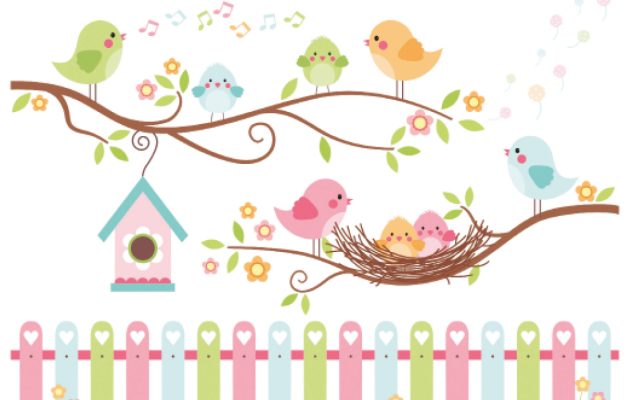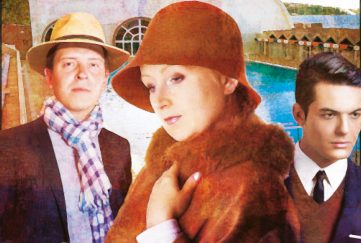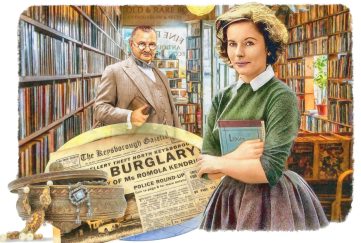Danger In Havana – Episode 33

Danger In Havana by Cara Cooper
« Previous Post- 1. Danger In Havana – Episode 01
- 1. Danger In Havana – Episode 33
THE old lady sighed, and there was the sense that finally she was unburdening herself of a lifetime of secrets.
“My father was an art dealer in Germany in the nineteen-thirties,” she continued. “A gifted man, he bought and sold legitimately. However, when Hitler came to power, one of the ways he persecuted those he oppressed, and lined the pockets of his henchmen, was to sanction the acquisition of a great deal of art from many Jewish families.
“My father sadly got caught up in this. I’m ashamed to say dear Papa was driven by Goebbels, who had conveniently identified what he described as ‘degenerate art’. Many of these beautiful artworks Goebbels thought were ‘rubbish’, and he and other Nazis could see that here was a way of making money. They persuaded legitimate dealers like my father to acquire such works at knockdown prices.
“These people were desperate to get out of Germany, they needed money to escape. Their collections were devalued and bought for next to nothing, virtually stolen. This was the Nazis’ insurance so that they would be rich whatever the outcome of the war.
“My father was in the process of shipping one of these collections at the command of a well-known Nazi general when the general was killed. My father was terrified of what would happen, and feared he would be imprisoned after the war if his part in this hideous practice was ever found out. So he simply hid the paintings here in Cuba.”
She turned to her nephew.
“You knew they existed, Otto, because he told you. But you didn’t know where they were hidden. What Papa did to hide his tracks was buy not just this house, but also the house next door. He put a brass plaque on the door, filled it with boring books about trains and pretended to turn it into the headquarters of the Society for the Preservation of Steam Locomotives of Cuba. No such society exists. It was a front, a place for him to hide the paintings.
“Now I suppose, dear Otto, you would like to know exactly where. The paintings are, in fact, located in the attic of that building, not this one. However, there is a secret trapdoor under the floor from the attic of this house, into the attic of the house next door. My father was a clever man, much more so than you will ever be, Otto.”
Otto was fuming, his face shiny with sweat, his nostrils flared.
“Those paintings,” he said through gritted teeth. “What good were they to you? You were never going to sell them. You could have made me rich.”
“What, and enabled you to be more of a crook than you already are? No, Otto. For years you pretended to care for me, when all you really care for is yourself. But when I got a little forgetful on occasions, you convinced yourself your poor old aunt was getting dementia, and that scared you, didn’t it? Because you thought I might go crazy and my secret would die with me.
“That’s when you upped your efforts and blackmailed this poor young woman into pretending she was my long-lost granddaughter. My estranged daughter’s child, come all the way from Germany to find me.
“I am sorry, child, that you were dragged into this sorry situation. It must have been terrifying. But I am old, I could not fight my corner. I was in fear for myself. I could only sit back and wait and hope the police didtheir job. Thank goodness they have, finally.”
Otto Weber spoke up.
“The trouble with you, Aunt, is you never really cared for me. You took me on when Mama fell ill all those years ago, only because you had to. It was my sister Clara who was the golden child, the beautiful one. I was ungainly, with none of her artistic talents. She was the one, too, who you wanted to mould into an image of yourself because you had musical aspirations to be a great pianist. But your talent and your application wasn’t good enough.
“You took the easy life out when you married Borden. Your rich husband kept you in a lovely lifestyle – big houses, fine holidays. But then, when you couldn’t have children and your sister was ill, you leaped on the chance to use Clara as your means of fulfilling your ambition to get involved in the life of a concert pianist. You tried to mould her into the person you had failed to become.”
He shook his head.
“Poor Clara . . . I used to envy and pity her at the same time. Getting all your attention was a double-edged sword. Hours of lessons when she was a child, all that practising and smothering kisses. While I remained in the background, with not a musical note in my head, being ignored. Do you not wonder at my feeling sour towards you?
“What a disappointment for you when Clara decided to go and live in Germany with that husband of hers you never liked. When she had a child of her own and gave up her professional career you decided to disown her. Suddenly she was of no more interest. All that so-called love you had poured into her turned into a need for revenge on her for raising your hopes then dashing them.”
He leaned forward.
“That’s why you were so eager to meet her daughter after all these years, wasn’t it? That’s why, when I told you that little Marlene was turning into a young woman and finally wanted to bury the hatchet and to meet you, you leaped at the chance. Do you know, Aunt, the only bit of good luck I had in my life was to be shown photographs of this young woman, Anna, by her father.”
















